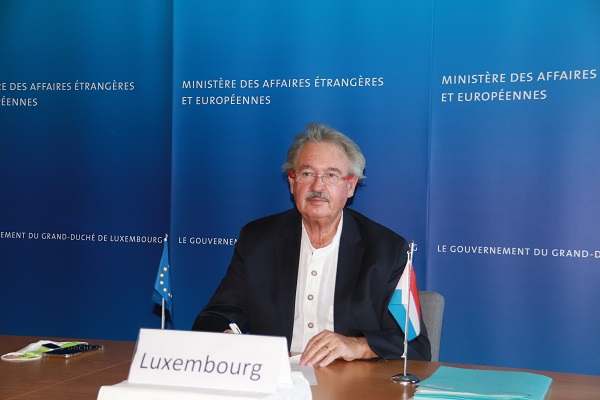 Jean Asselborn, Luxembourg's Minister of Foreign and European Affairs;
Credit: MAEE
Jean Asselborn, Luxembourg's Minister of Foreign and European Affairs;
Credit: MAEE
Luxembourg's Minister of Foreign and European Affairs, Jean Asselborn, participated in the ministerial meeting of the Global Forum on Steel Excess Capacity, which took place yesterday via video conference.
In 2016, the heads of state and government of the G20 established the Global Forum on Steel Excess Capacity to combat overcapacity in the steel sector. Bringing together first 33 and then 31 countries, following the departure of China and Saudi Arabia in October 2019, its objective is to put an end to government practices which are responsible for distorting the steel market and which in turn contribute to the problem of overcapacity.
Despite the work started since 2016, the problem has still not been resolved. Steel production overcapacity reached 800 million tonnes in 2015. Despite dropping to 519 million tonnes in 2019, the COVID-19 pandemic has reversed this positive trend by significantly decreasing demand for steel. This development is reflected in the overcapacity figures forecast for 2020, which could reach at least 606 million metric tonnes.
During this meeting, co-chaired by the European Union (EU) and South Korea, Minister Jean Asselborn called on the members who left the Global Forum to return, particularly in light of their weight in world steel production. He also appealed to G20 leaders to give new impetus to the work of the forum.
Luxembourg's Foreign Minister stressed that nearly 600 Luxembourg metalworkers risk losing their jobs mainly following a restructuring of the industry, caused by a drop in steel consumption. This decline is attributed to both overcapacity and a drop in demand. He recalled that Luxembourg was not an isolated case and that other countries had also witnessed job losses. The minister called for an end to this dramatic development, saying it was vital to continue to monitor steel capacities and policy developments in the global steel sector as well as to implement the ministerial recommendations of the Berlin and Paris meetings in order to support the recovery of this sector.









